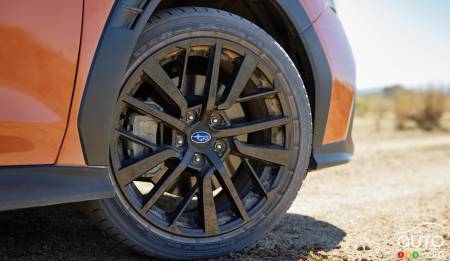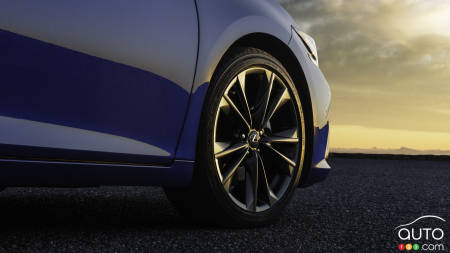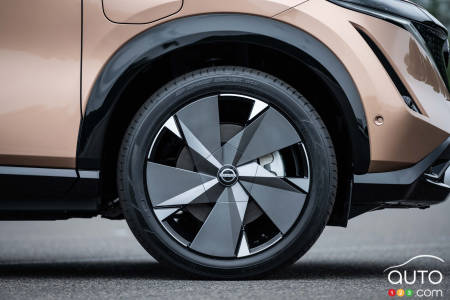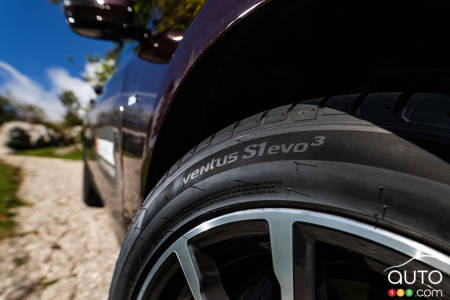Here is our guide to summer tires and all-season tires for cars for 2022 in Canada.
Tomorrow: The Best All-Season and Summer Tires for SUVs and pickups in Canada for 2022
Which tire should I choose for my car or truck? That's the question so many drivers ask themselves each spring when they realize the tires they have on their vehicles may not be the best for the upcoming season. Or maybe, the set sitting in the garage ready to be put on, should instead be put out to pasture!
Choosing new tires this season may not be as consequential is in the fall when new winter tires are needed. And it's not as pressing, since there is no specific date by which you must have summer tires put on your vehicle (as happens in Quebec in December for winter tires). But, for those who like to feel more secure with new tires, the next few weeks can be a time for shopping - and sometimes fighting for remaining stocks in stores.
This year, in 2022, we are still not back to what you would call a normal situation, given the recent past. For starters, new car sales are not as strong as usual right now, due to a lack of parts, especially electronic chips. This means that many consumers in genuine need of a newer vehicle may turn to pre-owned vehicles that may require better tires than they currently have on them.
At the same time, with fewer new cars available to them, many consumers will invest more money in the maintenance of their current vehicle, and that could include new tires. These factors could then influence the sale, popularity and availability of tires on the market.

So which tire should you choose?
First, let's get one thing straight. In the eyes of many consumers, tires are a little more than an afterthought, a “necessary evil”. Cars need tires. But don't just jump on any tire (especially used ones!) just because it happens to be the most affordable. I've been repeating this for years: Remember that your life and the lives of your passengers (including your children) rest on four points of contact with the road, each one barely larger than the palm of your hand! Have you thought about that while cruising at 120 km/h, or while driving in the pouring rain?
Now, it can be difficult to recommend a tire, a brand or a model to a consumer for whom a tire is merely a mass of black rubber necessary to move around. If you're new to the business, there are hundreds of makes, models and types of tires on the market, depending on whether you have an affordable, luxury, performance or off-road vehicle.
Give a thought, when you’re getting ready to buy a car or truck with “nice sporty wheels”, say with sporty rims and low-profile sport tires, to costs down the road. Those tires might look nice, but they’re expensive to replace and often they require more maintenance, attention and care (regular pressure checks, alignment, balancing...).
I've been covering the tire domain for over 40 years and have seen it evolve and change. If you don't know anything about tires, my first suggestion would be to not just look for “the best possible tire at the lowest possible price.” Although I might have some objections to this strategy in a few odd cases, I would say your safest bet is to choose exactly the same brand and same type of tires as the ones already on your vehicle when you bought it new. Of course, that's not always possible, so read on!

On a budget
A very common question many motorists ask me is: “Is there a tire that can stay on my car in winter and summer?” My answer is YES! But don't get too excited. This kind of all-season or year-round tire has limitations that have not yet been fully evaluated. They may be satisfactory but they will not perform that highly on certainly levels.
If you think that this type of tire could meet your needs, I could suggest the Nokian WRG4 or the Nordman Solstice, as well as the Michelin CrossClimate or the Goodyear Assurance Weatherready, for example. Just know that tests show that these tires are noisy in the summer, and that their winter performance is average.
I’m afraid that as far as I’m concerned, there’s just no avoiding the twice-yearly shlep to a service centre to have your tires changes. For several reasons, I prefer a true summer “all-season” tire that will have to be changed for a "true" winter tire in the fall!






